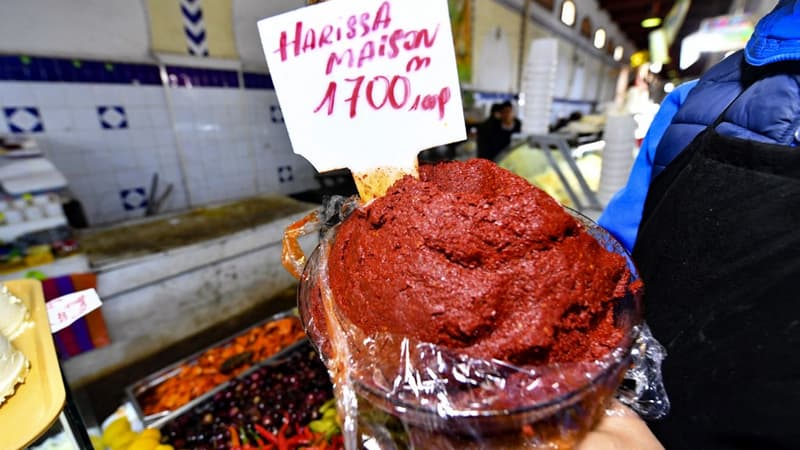After the wand, the harissa. National condiment in Tunisia made from peppers, was listed this Thursday by Unesco in the intangible heritage of humanity.
Meeting in Rabat, the Unesco Committee for Intangible Cultural Heritage, which above all honors the traditions to be safeguarded more than the products themselves, announced that it had included in its list of intangible heritage “harissa, knowledge, knowledge and culinary and social practices ” .
“Identifying element of the national culinary heritage”
Traditionally, harissa is cooked with sun-dried chilies, freshly prepared spices, and olive oil that preserves it and reduces heat. It is found in almost every dish in Tunisian restaurants and is exported to many countries.
“Used as a seasoning, ingredient, or even as a dish in its own right, harissa is well known throughout Tunisia, where it is consumed and produced, especially in regions where peppers are grown,” reads the filing of the application filed by Tunisia.
“It is perceived as an element of identity of the national culinary heritage, and a factor of social cohesion,” the text adds. “Prepared and consumed throughout Tunisia, harissa is perceived as a unifying element of an entire country.”
“As an integral part of household provisions and the daily culinary and gastronomic traditions of the entire Tunisian society, harissa is often prepared by women in a friendly family or local environment, festive in nature, marked by notable community support,” explains the app. proceedings.
cultural diplomacy
Adopted in October 2003 and ratified by 180 countries, the Convention for the Safeguarding of the Intangible Cultural Heritage promotes the safeguarding of the knowledge and techniques necessary for traditional crafts.
A cultural diplomacy tool, it also rewards “cultural practices transmitted from generation to generation, such as oral traditions, performing arts, social practices, rituals and festive events, or even knowledge and practices about nature and the universe.”
The list of the intangible cultural heritage of humanity already has more than 530 inscribed elements, 72 of which require urgent safeguarding.
Source: BFM TV


